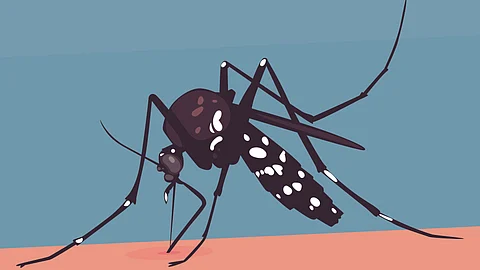India Achieves Milestone in Malaria Reduction: WHO Report 2024
The World Health Organization’s (WHO) World Malaria Report 2024 has commended India for its significant achievements in reducing malaria cases and deaths. According to the report, India successfully lowered its malaria incidence by 69%, with cases dropping from 6.4 million in 2017 to 2 million in 2023. Similarly, malaria-related deaths fell by 68%, from 11,100 to 3,500 over the same period.
Exit from HBHI Group
India officially exited the High Burden to High Impact (HBHI) group in 2024, a WHO initiative targeting the most malaria-affected regions worldwide. This milestone underscores India’s focused efforts in tackling the disease in high-endemic areas, which significantly contributed to the observed progress.
Role of Women-Led Community Health Initiatives
A notable aspect of India’s success lies in the contribution of community health workers, predominantly women, who have effectively reached remote populations. Their efforts have been instrumental in driving down malaria cases and associated mortality, demonstrating the power of grassroots healthcare delivery.
Global Malaria Burden: A Persistent Challenge
While India celebrates its success, malaria remains a global health crisis, particularly in Africa, which accounts for 95% of global malaria deaths.
Tragically, almost one in ten children worldwide succumb to malaria each year, emphasizing the need for sustained global action.
Malaria and Inequality
The WHO report highlights the link between malaria and socioeconomic inequality. According to Dr. Astrid Bonfield, CEO of Malaria No More UK, the disease disproportionately affects the poorest, least educated, and most disenfranchised, particularly women and girls. Barriers to accessing prevention, diagnosis, and treatment exacerbate the disease’s toll on these vulnerable groups.
The Commonwealth’s Commitment to Eradicating Malaria
At a meeting in the UK Parliament complex, stakeholders emphasized the importance of investing in malaria eradication as a smart economic strategy. Layne Robinson, Head of Social Policy Development at the Commonwealth Secretariat, announced that the Commonwealth Malaria Report—slated for release in 2025—will advocate for comprehensive elimination strategies to achieve a malaria-free world by 2030.
The Path Forward: Towards a Malaria-Free World
With continued investment, community engagement, and innovative strategies, global stakeholders hope to eradicate malaria by 2030, ensuring a healthier future for millions worldwide.
(Input from various sources)
(Rehash/Dr. Sreelekshmi P/MSM)


